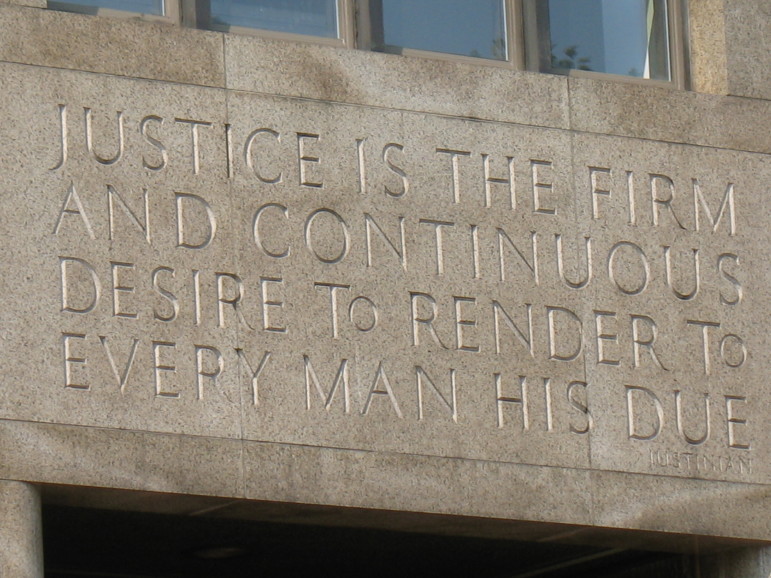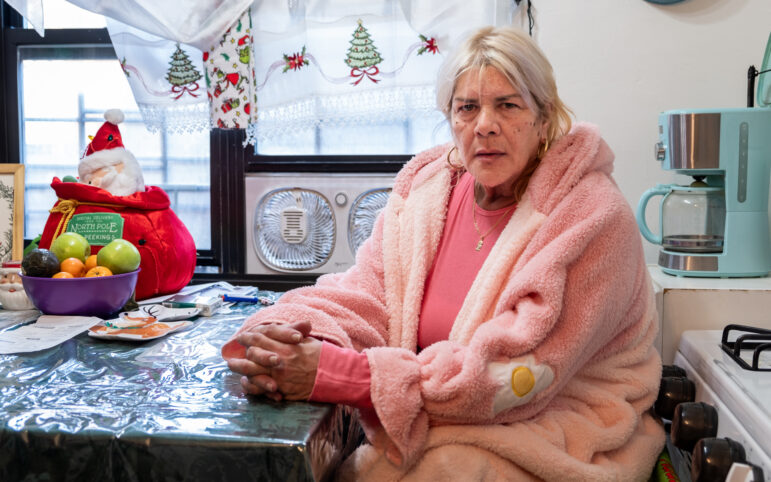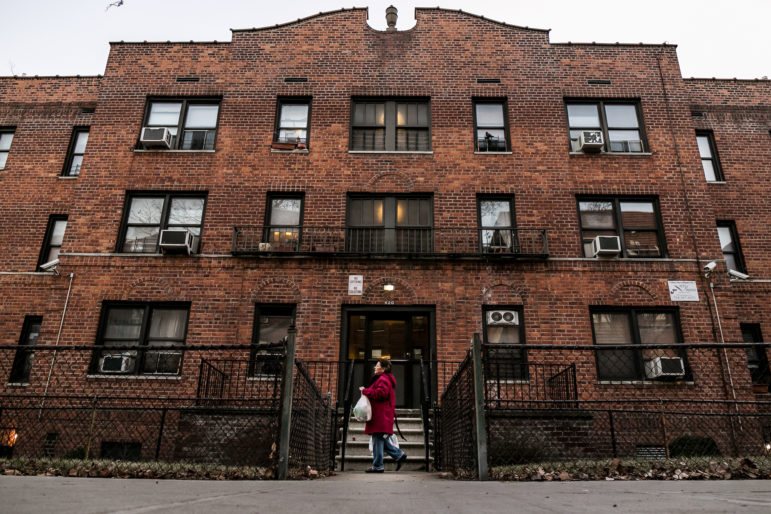The Staten Island Congressional race has been about ideology and association (and who hates Bill de Blasio more) but not about what either candidate has proposed or achieved legislatively.

DEA, U.S. House, NYS Assembly, NPS, Nesterak, Wong, Ribera, Murphy
Assemblymember Nicole Malliotakis and Rep. Max Rose have proposed legislation on topics like criminal justice, veterans’ affairs, bridge tolls, white supremacists, Sandy buyouts, the Gateway National Recreation Area, fentanyl trafficking and animal welfare.In the sharp-elbowed contest for the 11th Congressional district, Rep. Max Rose and Assemblywoman Nicole Malliotakis have traded blows over Bill de Blasio, Mitch McConnell and Nancy Pelosi. They’ve argued over whether Rose has supported defunding the police (he hasn’t) or whether Malliotakis once directed a PAC to fund de Blasio’s campaigns (the allegation is a stretch, at best).
They have not discussed Rose’s proposal to track foreign white supremacists operating in the United States, or Malliotakis’ call for stricter animal welfare rules. Those are, however, among the topics on which the two have worked in their careers as legislators—Rose in Washington for the past 33 months, and Malliotakis in Albany for nearly a decade.
While their race is largely about ideology and association, and is in the national spotlight solely because of its importance to determining which party controls the House, the actual job Malliotakis and Rose are fighting for is that of a lawmaker.
City Limits analyzed the candidates’ records as authors of legislation and found that both are fairly prolific authors with distinct philosophies and personal priorities, with Rose having the larger set of concrete legislative accomplishments.

Drafting one’s own laws is only one part of the job of an individual member of the House of Representatives. Helping to shape other pieces of legislation through amendments, conducting oversight and investigations, running constituent services, acting in a leadership capacity within one’s caucus and using the bully pulpit of the media to advance causes are other key elements of a congressmember’s work.
Given how much of the Rose-Malliotakis race has been about broad sentiment rather than particular policy, however, a look at how successful each has been in getting legislation passed offers some indication of their approach to that important duty. And a look at the proposals they have made reveals something of the beliefs that they hold most dear, or at least view as most politically valuable.
Among his peers
Rose has authored 31 bills since taking office in January 2019, ranking him ninth among the 13 members of Congress who represent a piece of New York City. (Rep. Nydia Velazquez, with 77 introductions, was the most prolific member of the delegation in the current session while Rep. Jose Serrano authored the fewest bills, 12.)
Five of his bills have been passed as standalone measures by the House, though none have become law. All five passed under what is known as a “suspension of the rules,” meaning they were approved along with other non-controversial measures by voice vote with just a few members in the chamber.
One of those bills was a low-wattage effort to name a Brooklyn post office after Mother Cabrini. Another, “Danny’s Law,” mandated the president appoint a commission on school bullying. Two of the passed bills address veterans’ issues: One would make public all Congressional reports about the Department of Veterans Affairs (VA), while the “FIGHT (Fostering Intergovernmental Health Transparency in) Veteran Suicides Act” would require the VA to provide an individual report to Congress anytime a veteran took her or his life at a VA facility.
The Transnational White Supremacist Extremism Review Act would direct the Department of Homeland Security’s Under Secretary for Intelligence and Analysis to prepare a “threat assessment regarding threats to the United States associated with foreign violent white supremacist extremist organizations.” The day the bill passed, on September 30, Rose and a Republican counterpart took to the House floor and exchanged compliments for the compromises they had struck in passing it. In his remarks as lead sponsor, Rose indicated that the rising visibility of white supremacists was not purely a homegrown phenomenon. “This white supremacist domestic terrorist problem is, in fact, not domestic at all. It’s global in nature,” he said, citing the 2019 attacks in El Paso, Texas and Poway, Calif., which were linked to an attack in Christchurch, New Zealand earlier that year.
Six other of Rose’s proposals were included in larger pieces of legislation, according to his office. One affected tolling on the Verrazano Bridge. Another established sanctions for foreign manufacturers who produced fentanyl.
Rose entered Congress along with 59 other rookie Democrats. Among them, the median number of bills proposed as 23. Rose was the 10th most prolific legislation author among his class.
“I came to Washington promising to stand up to both parties and get things done. President Trump signed six of my proposals into law, including my bill to put sanctions on Chinese pharmaceutical manufacturers, to allow construction on the East Shore Seawall to begin, and to bring split tolling to the Verrazzano in order to reduce traffic on our expressways. And I did all of this without taking a cent from Corporate PACs or federal lobbyists,” Rose said in a statement emailed to City Limits.
Life in the minority
Malliotakis won election to the Assembly in 2010, defeating a Democrat—a coup for the Grand Old Party, but one that did not meaningfully affect the Democratic majority that has controlled the legislature’s lower house since 1975. Over Malliotakis’ five terms in Albany, Democrats have enjoyed a better than 2:1 advantage over Republicans.
She has introduced 149 bills during her career in the capitol. Six of them have become law. Four of those measures were versions of the same law, extending each year the deadline for the acquisition of land for the Gateway National Recreation Area. One Malliotakis law required the state to use any property it acquired through buyout programs after Superstorm Sandy to be turned into open space.
Seven other Republicans—Ken Blankenbush, Chris Friend, Andy Goodell, Marc Johns, Michael Montesano, Ed Ra and Phil Palmesano—were also elected to the Assembly in 2010. On average, members of that group introduced 129 bills from 2011 through the current session, and saw 17 of those measures become law, suggesting that Malliotakis is a prolific law writer with less knack for getting her proposals passed.
The numbers, however, only reveal so much about a legislative career. Some lawmakers get more legislation through because there are certain procedural bills, like sales tax justifications, that each county needs approved every few years—generating easy legislative wins. It also can be easier to get symbolic gestures passed than substantive legislation, so lawmakers who favor the former tend to see more success.
“Republicans are basically banned from having substantive bills passed. Years will go by without a Republican passing a substantive bill because of the partisanship,” Kieran Lalor, a Republican assemblyman from Dutchess County, told City Limits. Bills by GOP members “are not even considered,” says Labor, who has introduced 118 bills over his four terms in Albany, and seen four passed. “To be effective you hand off legislation to Democrats, and work bipartisanly.”
Indeed, Malliotakis (whose office did not respond to an inquiry) has been a cosponsor on at least 75 measures that became law over the past decade. In this session, for instance, she signed on to a bill that created a tax exemption for severely injured veterans who made improvements to their property, and another that tightened the standards for elevator repair technicians.
Still, her bigger impact might not have been in the legislative arena. Malliotakis developed a relatively high media profile early in her career: She addressed CPAC, the premier annual national gathering of right-wing activists, in 2013—in just her second term, a full four years before her mayoral race.
“Nicole is formidable without being in the majority because she comes out and hammers things,” Lalor said. He credited her with helping to create momentum for the legislature to revisit bail reform in early 2020. “That would not have happened if we didn’t have an effective communicator, and Nicole was that.”
Their legislative wish lists
Whether or not Rose and Malliotakis have succeeded in passing bills is one consideration; what the bills they have proposed say about their philosophy and priorities is another.
Both Malliotakis and Rose have spent a good deal of time and effort during their race defining their brand of politics. Malliotakis, who distanced herself from the president during her 2017 campaign for mayor, has embraced Trump fully this year. Unlike most Democrats and a growing number of Republicans, Rose boasts often of instances where he supported the president. In fact, Rose disparages his party so often that the race can feel more like a Republican primary than a red-blue face-off. “From keeping my word and voting against Speaker Pelosi, to voting against my party more than twice as much as the average Democrat, to voting with Republicans nearly 70 percent of the time, I will always put country first,” Rose said in his statement to City Limits.
The laws the two have proposed generally track with the image each has presented this year.
A look at Malliotakis’ legislative offerings does reveal an abiding interest in animal welfare. She has introduced 35 animal welfare measures—often re-introducing identical bills each session. Five times, for instance, Malliotakis has proposed expanding the definition of “aggravated animal cruelty” to include anyone who kills or injures an animal on purpose and does so “in an especially depraved or sadistic manner.”
The rest of her legislative wish-list, however, echoes her public statements—and reflects her intense focus on a punitive approach to criminal justice. Among the other measures Malliotakis has proposed five or more times are measures:
- elevating the severity of crimes like patronizing a prostitute and permitting prostitution,
- bolstering the system for taking driver’s licenses away from drunk drivers,
- reversing some of the Rockefeller Drug Law reforms to end the sealing of records from drug treatment courts, so employers could see them, and
- creating a “blue alert system” to help catch people who shoot or kill cops.
Rose’s legislative portfolio, meanwhile, does nothing to ratify Malliotakis’ suggestion that he is in league with the radical left.
Several of the measures he’s written address gripes particular to Staten Island, like the Captive Commuter Toll Relief Act, the Tax Relief for Bridge Tolls Act of 2020 and a bill granting a federal charter to the National Lighthouse Center and Museum on Staten Island.
Other Rose bills target veterans’ issues and two—the Ban Corporate PACs Act and the Lobbyist Loophole Closure Act—focus on government ethics.
Also in the mix are proposals to set up resources to address healthcare-worker burnout amid COVID, enhance fire safety in public housing and create the Cabinet-level position of Director of Pandemic and Biodefense Preparedness and Response.
While statistics of its nature are somewhat abstract and highly subjective, govtrack’s “ideology score” indicates Rose is the 222ndnd most conservative member of Congress—which, inversely, means he is the 213th most liberal. In other words, he’s smack dab in the middle. The ranking by Progressive Punch says Rose is “leaning Republican.”









One thought on “Puppies, Prostitution, Bullies and Tolls: Rose and Malliotakis as Lawmakers”
Their campaigns have been so uninformative, it’s depressing. Thank god for decent journalism doing the job the candidates should have been doing, and letting us know what their positions and accomplishments are. I found this Maliotakis proposal particularly disturbing: “reversing some of the Rockefeller Drug Law reforms to end the sealing of records from drug treatment courts, so employers could see them.” For someone who represents a district seized by the opioid epidemic, you’d expect more of a desire to help recovered addicts, not compound the problems by reducing the likelihood of them finding gainful employment. Keeping people at the margins just exacerbates the problem.